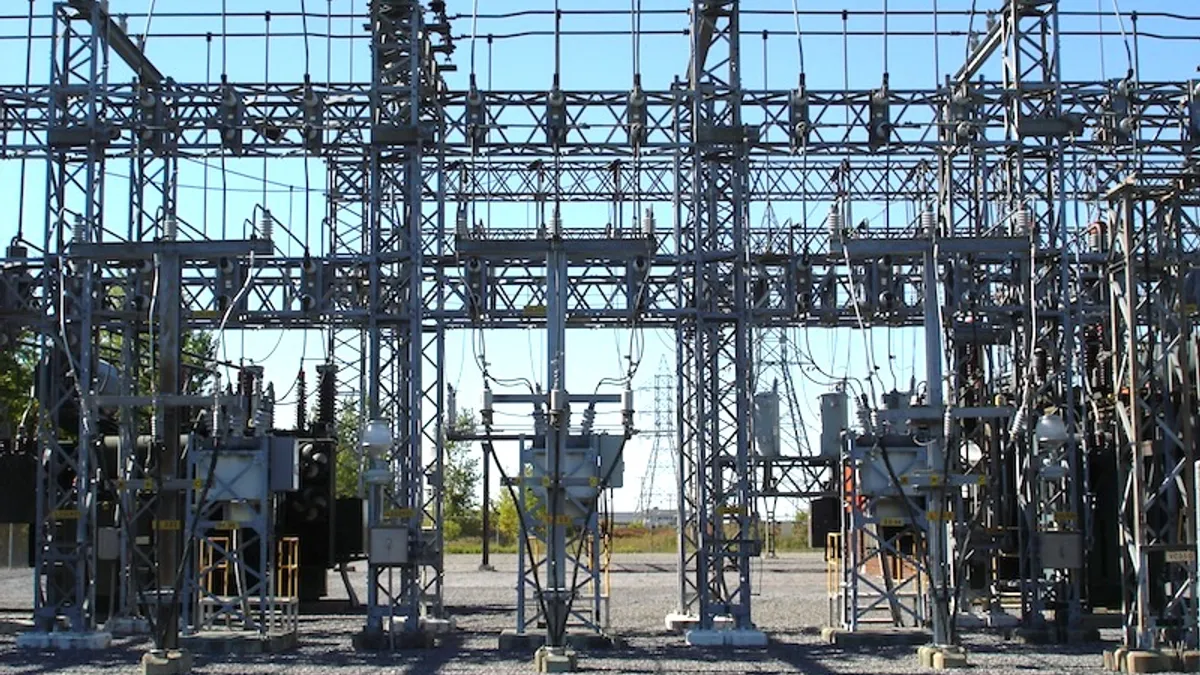ABB's sale of its power transmission business to Hitachi reflects a wider trend in the global market for power equipment.
The global technology company is turning its focus to Europe and the growing market for distributed energy while Hitachi is gearing up to compete in the Asian market for heavy electrical grid equipment, such as transmission lines, transformers and substations.
"Essentially ABB is taking a step back" from the Asian market for heavy electric equipment, analyst Max Halik at Lux Research told Utility Dive. The company is keeping the distributed power business while "ceding the large business to Hitachi," he said.
The market for heavy electrical equipment is moving to Asia where demand for electric power is growing quickly and much of the business is being won by local companies, particularly State Grid Corp. of China. The state-owned company in May won the bid to build a 540 mile, 660 kW transmission line in Pakistan, beating out competing bids from ABB, General Electric and Siemens.
"In Europe, ... it is more about managing the quality of the electric networks."

Max Halik
Analyst, Lux Research
In Europe, demand for electric power is growing slowly, unlike the demand for equipment to serve distributed resources, such as inverters and electric car chargers. European utilities like E.On and Enel are turning their focus to distributed power, too, in a parallel to the ABB sale, Halik said. "In Europe, load is down, and it is more about managing the quality of the electric networks," he said.
ABB's sale is also a response to pressure from analysts and activist investor Cevian Capital, which wanted the company to pare back its many divisions. In the newly announced deal, ABB agreed to sell its Power Grids business to Hitachi for $6.4 billion. ABB plans to spin off Power Grids into a separate company. Hitachi will initially have an 80.1% stake in that company that will increase to full ownership over four years. The initial sale is scheduled to close on April 1, 2019.
ABB has spent the past several years improving the performance of power transmission equipment in its Power Grids sector. Last year, the unit had $10 billion in revenues and a 10% profit margin. Now is "the right time" to sell the unit, CEO Ulrich Spiesshofer told reporters.
The deal would position Hitachi right behind General Electric as the second largest manufacturer of heavy electrical equipment in the world. But it would also pit Hitachi against rivals with more experience, such as Siemens and Schneider Electric.
Hitachi, once known for its consumer electronics, sold most of that business about 10 years ago to focus on heavy equipment such as power plants and locomotives, a move that parallels GE's sale of its consumer goods business and its investment in turbine maker Alstom.
Over the years, Hitachi executives have said they would like to become large enough to compete with the likes of GE and Siemens. The ABB deal clears the way for Hitachi "to become a truly global company," Toshiaki Higashihara, Hitachi president and CEO, told reporters.
Similar moves by another Japanese company have not worked out very well, however. Toshiba bought nuclear power company Westinghouse Electric for $5.4 billion in 2006. Westinghouse filed for bankruptcy in March 2017, nearly taking Toshiba down with it.
GE's purchase of Alstom's power and energy assets also did not work out well. It has been frequently cited as one of the causes of GE's recent downturn and its moves to reorganize its divisions and sell $20 billion in assets.













